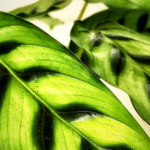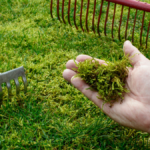Welcome to this article about plants that don’t do well with mushroom compost! Mushroom compost is a popular soil amendment that can provide many benefits to plants, but not all plants respond positively to it. In this article, we will explore reasons why some plants may be adversely affected by mushroom compost, so you can make an informed decision about whether it is the right choice for your garden.
Mushroom compost is a great way to provide nutrients to your plants, but unfortunately, not all plants appreciate the effects of mushroom compost. While some plants thrive in mushroom compost, others don’t. Below are some of the plants that don’t like mushroom compost and should be avoided if you plan to use it.
- Azaleas – Azaleas are very sensitive to changes in pH levels. While mushroom compost can help to increase the availability of nitrogen and other essential nutrients, it can also make the soil too acidic for azaleas.
- Magnolias – Magnolias prefer slightly acidic soil, but mushroom compost can make the soil too acidic for them.
- Camellias – Like azaleas, camellias are also very sensitive to changes in pH levels. The acidic nature of mushroom compost can cause the soil to become too acidic for these plants.
- Tomatoes – Tomatoes prefer a neutral to slightly alkaline soil, and mushroom compost can make the soil too acidic for them.
- Begonias – Begonias prefer slightly acidic soil, but mushroom compost can make the soil too acidic for them.
- Gardenias – Gardenias are very sensitive to changes in pH levels. The acidic nature of mushroom compost can cause the soil to become too acidic for these plants.
- Peppers – Peppers prefer a neutral to slightly alkaline soil, and mushroom compost can make the soil too acidic for them.
It’s important to remember that just because a plant doesn’t like mushroom compost doesn’t mean it won’t grow. You can still use mushroom compost, but make sure to adjust the pH levels of the soil to suit the plant you’re growing.



